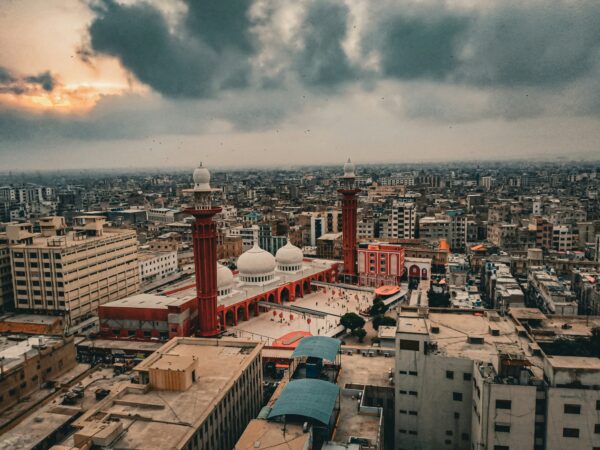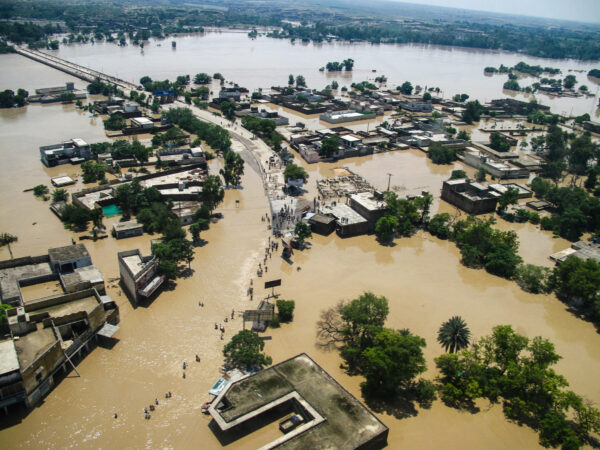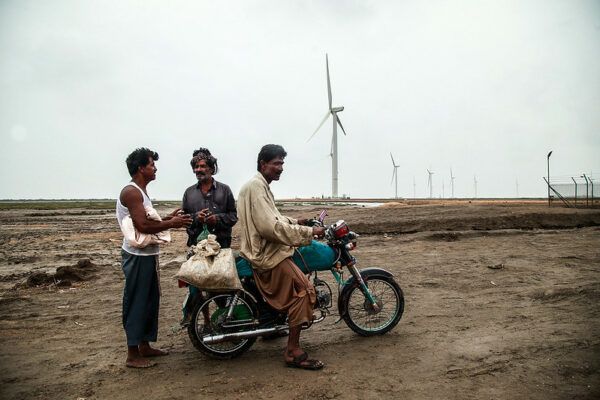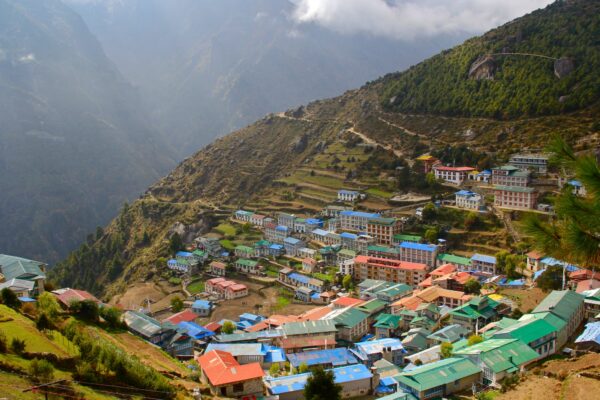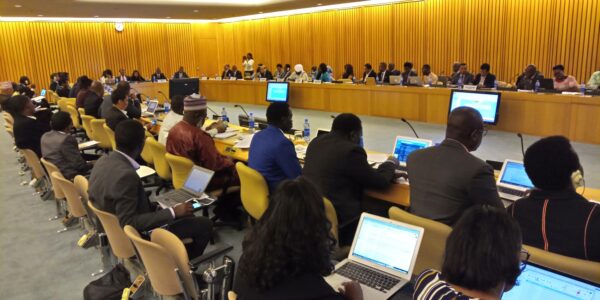
Dr Fahad Saeed is a leading climate scientist with over 20 years of experience spanning scientific research, policy engagement, and climate advocacy. He holds a Ph.D. in Earth Sciences from the Max Planck Institute for Meteorology in Germany, with a specialisation in regional climate modelling for South Asia. He is currently based in Islamabad, Pakistan.
Fahad’s expertise covers a broad spectrum of climate science, including climate and hydrological modelling, big data analysis, future climate projections, risk and vulnerability assessments, impact and attribution studies, and the formulation of climate policy. He has authored numerous peer-reviewed publications, scientific reports, and policy briefs, contributing significantly to both academic and policy domains.
Fahad has also been a long-standing member of the scientific advisory team supporting the Least Developed Countries (LDCs) in international climate negotiations.
In addition to his scientific and diplomatic contributions, Fahad uses his platform to raise public awareness on climate change through regular commentary and analysis featured in leading international media outlets such as The Guardian, Wall Street Journal, New York Times, The Third Pole, Al Jazeera, BBC, CNN, The Conversation, and Sky News.
Publications
- Matthews, T.M., Ramsay, E.R., Saeed, F.S., Sherwood, S.S., Jay, O.J., Raymond, C.R., Abram, N.A., Kai Wei Lee, J.K.W.L., Barley, S.B., Perkins-Kirkpatrick, S.P., Saleh Khan, M.S.K., Meissner, K.M., Roberts, C.R., Mavalankar, D.M., Smith, K.S., Ullah, A.U., Sadad, A.S., Turner, V.T., Forrest, A.F. Humid heat exceeds human tolerance limits and causes mass mortality. nature climate change. (2024) https://doi.org/10.1038/s41558-024-02215-8
- Zachariah, Jha, Mondal, Rauniyar, Vahlberg, Kayastha, Raju, Baumgart, Saeed, Otto. Rapid urbanisation and climate change key drivers of dramatic flood impacts in Nepal. (2024) https://doi.org/10.25561/115192
- Coucou, D.C., Arias, P.A.A., Bastos, A.B., Gonzales, C.K.G.G., Hegerl, G.C.H., Hope, P.H., Jack, C.J., Otto, F.O., Saeed, F.S., Serdeczny, O.S., Shepherd, T.G.S., Vautard, R.V. How can event attribution science underpin financial decisions on Loss and Damage?. PNAS Nexus. 3, 8 (2024) https://doi.org/10.1093/pnasnexus/pgae277
- Zachariah, Saeed, Barnes, Clark, Vahlberg, Thalheimer, Otto. Increasing April-May rainfall, El Niño and high vulnerability behind deadly flooding in Afghanistan, Pakistan and Iran. (2024)
- Zachariah, Kimutai, Barnes, Gryspeerdt, Seneviratne, Almazroui, Vautard, Zhang, Pinto, Vahlberg, Sengupta, Saeed, Otto. Heavy precipitation hitting vulnerable communities in the UAE and Oman becoming an increasing threat as the climate warms. (2024) https://spiral.imperial.ac.uk/handle/10044/1/110910
- Martyr, Saeed, Klönne, Nauels, Rosen, Schleussner. The 1.5°C limit and risks of overshoot. (2024)
- Mushtaq, Akhtar, Zia ur Rahman Hashmi, Masood, Saeed. Hydrologic interpretation of machine learning models for 10-daily streamflow simulation in climate sensitive upper Indus catchments. Theoretical and Applied Climatology. (2024) https://link.springer.com/article/10.1007/s00704-024-04932-8
- Martyr. Le seuil de +1,5°C et le risque de dépassement de ce seuil
- Nath, Hauser, Schumacher, Lejeune, Gudmundsson, Quilcaille, Candela, Saeed, Seneviratne, Schleussner. Representing natural climate variability in an event attribution context: Indo-Pakistani heatwave of 2022. Weather and Climate Extremes. (2024) https://www.sciencedirect.com/science/article/pii/S221209472400032X?via%3Dihub
- Otto, Zachariah, Saeed, Siddiqi, Kamil, Mushtaq, Arulalan, AchutaRao, Chaithra, Barnes. Climate change increased extreme monsoon rainfall, flooding highly vulnerable communities in Pakistan. Environmental Research: Climate. Volume 2, Number 2 (2023) https://iopscience.iop.org/article/10.1088/2752-5295/acbfd5
- Long term strategies: low carbon growth, resilience and prosperity for Least Developed Countries
- Deadly Heat Stress to Become Commonplace Across South Asia Already at 1.5°C of Global Warming
- Sharing the burden: quantifying climate change spillovers in the European Union under the Paris Agreement
- From Paris To Makkah: Heat stress risks for Muslim pilgrims at 1.5°C and 2°C
- Coal phase-out and energy transition pathways for Asia and the Pacific
- Water availability in Pakistan from Hindukush–Karakoram–Himalayan watersheds at 1.5°C and 2°C Paris Agreement targets
- Decarbonising South Asia and South East Asia
- Why geoengineering is not a solution to the climate problem
- Climate impacts at 1.5°C and 2°C – Results of the HAPPI DE Project Klimafolgen bei 1,5°C und 2°C
- 1.5°C Hotspots: Climate Hazards, Vulnerabilities, and Impacts
- Crop productivity changes in 1.5° C and 2° C worlds under climate sensitivity uncertainty
- Risks for the global freshwater system at 1.5 °C and 2 °C global warming
- Robust changes in tropical rainy season length at 1.5°C and 2°C
- Impacts of 1.5 versus 2°C on cereal yields in the West African Sudan Savanna

